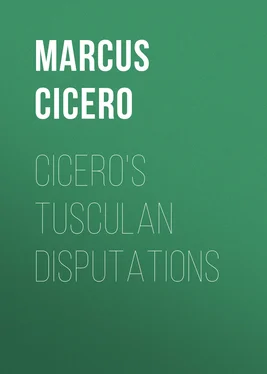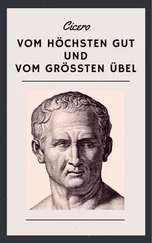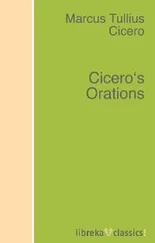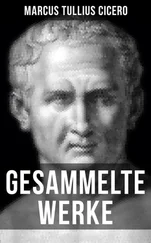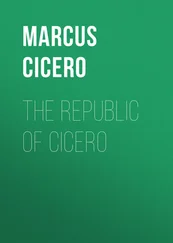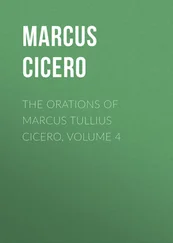Marcus Cicero - Cicero's Tusculan Disputations
Здесь есть возможность читать онлайн «Marcus Cicero - Cicero's Tusculan Disputations» — ознакомительный отрывок электронной книги совершенно бесплатно, а после прочтения отрывка купить полную версию. В некоторых случаях можно слушать аудио, скачать через торрент в формате fb2 и присутствует краткое содержание. Издательство: Иностранный паблик, Жанр: foreign_antique, Философия, foreign_edu, на английском языке. Описание произведения, (предисловие) а так же отзывы посетителей доступны на портале библиотеки ЛибКат.
- Название:Cicero's Tusculan Disputations
- Автор:
- Издательство:Иностранный паблик
- Жанр:
- Год:неизвестен
- ISBN:нет данных
- Рейтинг книги:3 / 5. Голосов: 1
-
Избранное:Добавить в избранное
- Отзывы:
-
Ваша оценка:
- 60
- 1
- 2
- 3
- 4
- 5
Cicero's Tusculan Disputations: краткое содержание, описание и аннотация
Предлагаем к чтению аннотацию, описание, краткое содержание или предисловие (зависит от того, что написал сам автор книги «Cicero's Tusculan Disputations»). Если вы не нашли необходимую информацию о книге — напишите в комментариях, мы постараемся отыскать её.
Cicero's Tusculan Disputations — читать онлайн ознакомительный отрывок
Ниже представлен текст книги, разбитый по страницам. Система сохранения места последней прочитанной страницы, позволяет с удобством читать онлайн бесплатно книгу «Cicero's Tusculan Disputations», без необходимости каждый раз заново искать на чём Вы остановились. Поставьте закладку, и сможете в любой момент перейти на страницу, на которой закончили чтение.
Интервал:
Закладка:
III. But, on the contrary, we early entertained an esteem for the orator; though he was not at first a man of learning, but only quick at speaking: in subsequent times he became learned; for it is reported that Galba, Africanus, and Lælius were men of learning; and that even Cato, who preceded them in point of time, was a studious man: then succeeded the Lepidi, Carbo, and Gracchi, and so many great orators after them, down to our own times, that we were very little, if at all, inferior to the Greeks. Philosophy has been at a low ebb even to this present time, and has had no assistance from our own language, and so now I have undertaken to raise and illustrate it, in order that, as I have been of service to my countrymen, when employed on public affairs, I may, if possible, be so likewise in my retirement; and in this I must take the more pains, because there are already many books in the 11Latin language which are said to be written inaccurately, having been composed by excellent men, only not of sufficient learning; for, indeed, it is possible that a man may think well, and yet not be able to express his thoughts elegantly; but for any one to publish thoughts which he can neither arrange skilfully nor illustrate so as to entertain his reader, is an unpardonable abuse of letters and retirement: they, therefore, read their books to one another, and no one ever takes them up but those who wish to have the same license for careless writing allowed to themselves. Wherefore, if oratory has acquired any reputation from my industry, I shall take the more pains to open the fountains of philosophy, from which all my eloquence has taken its rise.
IV. But, as Aristotle, 4 4 For an account of the ancient Greek philosophers, see the sketch at the end of the Disputations.
a man of the greatest genius, and of the most various knowledge, being excited by the glory of the rhetorician Isocrates, 5 5 Isocrates was born at Athens 436 b.c. He was a pupil of Gorgias, Prodicus, and Socrates. He opened a school of rhetoric, at Athens, with great success. He died by his own hand at the age of ninety-eight.
commenced teaching young men to speak, and joined philosophy with eloquence: so it is my design not to lay aside my former study of oratory, and yet to employ myself at the same time in this greater and more fruitful art; for I have always thought that to be able to speak copiously and elegantly on the most important questions was the most perfect philosophy. And I have so diligently applied myself to this pursuit, that I have already ventured to have a school like the Greeks. And lately when you left us, having many of my friends about me, I attempted at my Tusculan villa what I could do in that way; for as I formerly used to practise declaiming, which nobody continued longer than myself, so this is now to be the declamation of my old age. I desired any one to propose a question which he wished to have discussed, and then I argued that point either sitting or walking; and so I have compiled the scholæ, as the Greeks call them, of five days, in as many books. We proceeded in this manner: when he who had proposed the subject for discussion had said what he thought proper, I 12spoke against him; for this is, you know, the old and Socratic method of arguing against another’s opinion; for Socrates thought that thus the truth would more easily be arrived at. But to give you a better notion of our disputations, I will not barely send you an account of them, but represent them to you as they were carried on; therefore let the introduction be thus:
V. A. To me death seems to be an evil.
M. What, to those who are already dead? or to those who must die?
A. To both.
M. It is a misery, then, because an evil?
A. Certainly.
M. Then those who have already died, and those who have still got to die, are both miserable?
A. So it appears to me.
M. Then all are miserable?
A. Every one.
M. And, indeed, if you wish to be consistent, all that are already born, or ever shall be, are not only miserable, but always will be so; for should you maintain those only to be miserable, you would not except any one living, for all must die; but there should be an end of misery in death. But seeing that the dead are miserable, we are born to eternal misery, for they must of consequence be miserable who died a hundred thousand years ago; or rather, all that have ever been born.
A. So, indeed, I think.
M. Tell me, I beseech you, are you afraid of the three-headed Cerberus in the shades below, and the roaring waves of Cocytus, and the passage over Acheron, and Tantalus expiring with thirst, while the water touches his chin; and Sisyphus,
Who sweats with arduous toil in vain
The steepy summit of the mount to gain?
Perhaps, too, you dread the inexorable judges, Minos and Rhadamanthus; before whom neither L. Crassus nor M. Antonius can defend you; and where, since the cause lies before Grecian judges, you will not even be able to employ Demosthenes; but you must plead for yourself before a 13very great assembly. These things perhaps you dread, and therefore look on death as an eternal evil.
VI. A. Do you take me to be so imbecile as to give credit to such things?
M. What, do you not believe them?
A. Not in the least.
M. I am sorry to hear that.
A. Why, I beg?
M. Because I could have been very eloquent in speaking against them.
A. And who could not on such a subject? or what trouble is it to refute these monstrous inventions of the poets and painters? 6 6 So Horace joins these two classes as inventors of all kinds of improbable fictions: Pictoribus atque poetis Quidlibet audendi semper fuit æqua potestas.—A. P. 9. Which Roscommon translates: Painters and poets have been still allow’d Their pencil and their fancies unconfined.
M. And yet you have books of philosophers full of arguments against these.
A. A great waste of time, truly! for who is so weak as to be concerned about them?
M. If, then, there is no one miserable in the infernal regions, there can be no one there at all.
A. I am altogether of that opinion.
M. Where, then, are those you call miserable? or what place do they inhabit? For, if they exist at all, they must be somewhere.
A. I, indeed, am of opinion that they are nowhere.
M. Then they have no existence at all.
A. Even so, and yet they are miserable for this very reason, that they have no existence.
M. I had rather now have you afraid of Cerberus than speak thus inaccurately.
A. In what respect?
M. Because you admit him to exist whose existence you deny with the same breath. Where now is your sagacity? When you say any one is miserable, you say that he who does not exist, does exist.
A. I am not so absurd as to say that.
14 M. What is it that you do say, then?
A. I say, for instance, that Marcus Crassus is miserable in being deprived of such great riches as his by death; that Cn. Pompey is miserable in being taken from such glory and honor; and, in short, that all are miserable who are deprived of this light of life.
M. You have returned to the same point, for to be miserable implies an existence; but you just now denied that the dead had any existence: if, then, they have not, they can be nothing; and if so, they are not even miserable.
A. Perhaps I do not express what I mean, for I look upon this very circumstance, not to exist after having existed, to be very miserable.
Читать дальшеИнтервал:
Закладка:
Похожие книги на «Cicero's Tusculan Disputations»
Представляем Вашему вниманию похожие книги на «Cicero's Tusculan Disputations» списком для выбора. Мы отобрали схожую по названию и смыслу литературу в надежде предоставить читателям больше вариантов отыскать новые, интересные, ещё непрочитанные произведения.
Обсуждение, отзывы о книге «Cicero's Tusculan Disputations» и просто собственные мнения читателей. Оставьте ваши комментарии, напишите, что Вы думаете о произведении, его смысле или главных героях. Укажите что конкретно понравилось, а что нет, и почему Вы так считаете.
